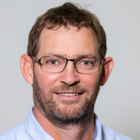The Current Column
Spring comes around every year
Germany and Europe cannot give up on North Africa
Houdret, Annabelle / Mark FurnessThe Current Column (2018)
Bonn: German Development Institute / Deutsches Institut für Entwicklungspolitik (DIE), The Current Column of 26 February 2018
Bonn, 26 February 2018. Seven years after the “Arab Spring”, North Africa’s hopes for more social justice, participation and transparency in politics, and better public services are yet to be fulfilled. Germany and the EU must not, however, not give up on the region. What began there in 2011 is comparable to Europe’s own democratic transformation, which took several generations and catastrophic wars, before it was finally anchored in place after 1945. There is also some positive news from North Africa: in Tunisia, civil society is actively involved in the country’s transition and is pushing for to greater justice, transparency and participation. In Morocco, decentralisation reforms offer prospects for civic-oriented politics, in spite of the slow progress towards realisation. Both countries have new, more democratic constitutions. And in both countries a new protest culture has emerged since 2011, resulting in a new quality of public debate. Even in Libya and Egypt, brave people are also demanding a more responsible political approach from the regimes and the militias. What can Germany and the EU do to provide constructive support for change in the Arab world? In 2011 it initially looked as if democratic movements would be supported, instead of authoritarian rulers. However, questionable refugee deals, the never-ending war on terrorism and the International Monetary Fund-driven fiscal austerity all seem to have much higher priority than long-term development. This is no way to strengthen trust in a nascent democratic process. Seven years after the beginning of the uprising against authoritarian rulers – also in opposition to the supportive policies of the West – it is time for Germany and the EU to rethink their strategy in North Africa. There are three measures that could help with this: First, North Africa cannot be reduced to its role in dealing with migration, even if this is a crucially important issue. Development challenges cannot be reduced to “tackling the root causes of migration” – secure water supplies, better education and healthcare improve development opportunities, even if they do not directly counteract migration. While some aspects of migration policy can be addressed through development co-operation projects, the motivation for development cooperation itself can never be reduced to “migration management”. Ultimately, even the best development cooperation outcomes will never prevent flight and migration and development can only retain credibility by insisting on its right to exist beyond this heavily politicised issue. This kind of negative politics also influences our image of the people of the region, who cannot be reduced to the status of mere potential migrants. The EU and Germany should be much stronger in their criticism of the disgusting and inhuman treatment of migrants and refugees. Police excesses and dumping migrants from Europe on the edges of the desert in Morocco and Algeria should not be tolerated. Second, German and European North Africa policy should acknowledge changes in the African continent. The countries in the north of the continent retain close cultural, linguistic and religious links with the Arab world; however, in recent years they have been turning increasingly towards Sub-Saharan Africa. The return of Morocco to the African Union has strengthened the economic and political influence of the country on the continent. Civil society is also increasingly orientating itself towards the experiences of NGOs in Sub-Saharan Africa, for example regarding the fight against of corruption. As a consequence, Germany and the EU should work much harder to promote South-South co-operation, for example via the closer interlinking of the EU Association Agreements with North African countries, and the partnership between the EU and the African, Caribbean and Pacific states. Third, in calling for greater investment in the private sector – such as in the Marshall Plan with Africa – North Africa policy should not neglect the fact that only fundamental political and economic reforms can create perspectives for development. All profits and rents that flow to established elites and do not benefit the population at large will serve to destabilise the political system in the long term. They will not contribute to “tackling the root causes of migration”. Instead, the core principles of democratic government – such as political participation, transparency and accountability – should be supported through development aid conditionality to a far greater extent. Measures such as improved access for North African countries to the European single market for goods and services are, as ever, still urgently required. There are numerous opportunities for promoting these issues within the scope of the Marshall Plan with Africa, the efforts of French President Macron to establish a new European Africa policy and the German presidency of the EU Council in 2020. At the end of the day, Germany’s reputation in the region remains positive, thanks to its refugee policy and many years of development co-operation. Germany now has the chance to be a “player” in North Africa. The people there need much more than just “congratulations” to mark the seventh anniversary of North Africa’s uprisings.


